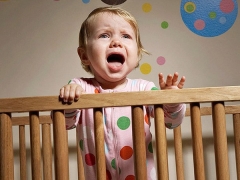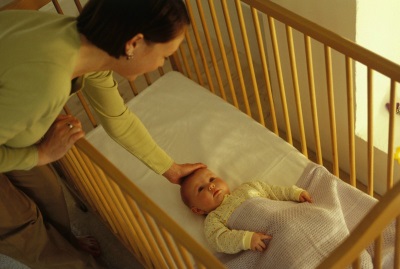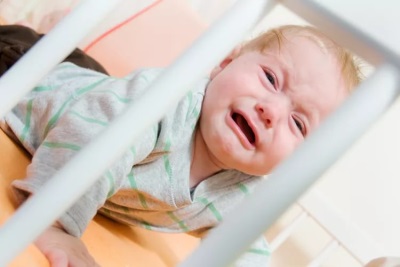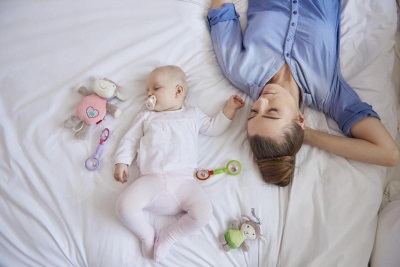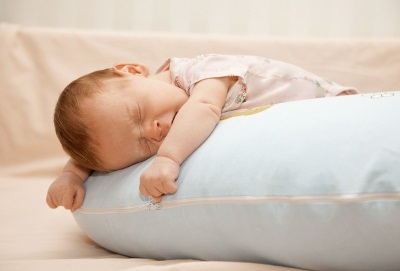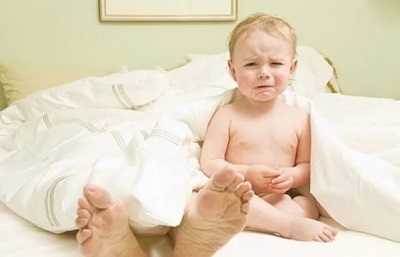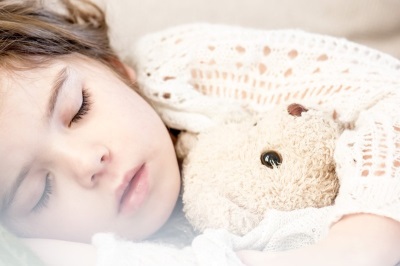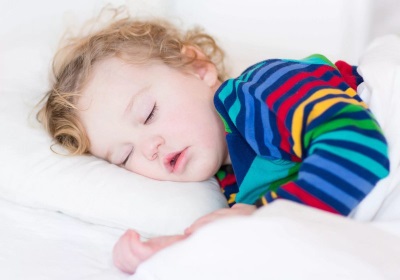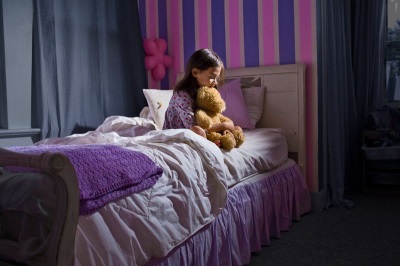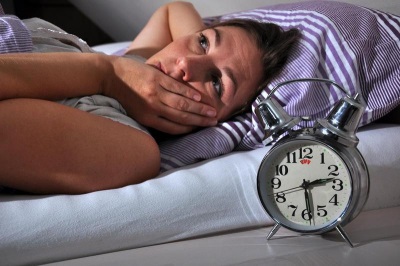The child sleeps restlessly at night: the advice of psychologists
Restless sleep of a child is a frequent reason for parents to worry. Scarce spins all night, falls asleep for a while, but his sleep is not strong, disturbing, any rustle can disrupt him. What happens to the baby? Experienced parents with experience, as a rule, are well-versed in the needs of their children, but even they sometimes have questions related to the restless sleep of the baby.
The reasons
There may be several reasons. Both physical and psychological.
- The child sleeps restlessly at night if he begins to fall ill. The disease has not yet manifested itself on the physical level, and apparently the baby is completely healthy. But he already feels unwell, and begins to worry in advance. If the baby is already 5 months old or more, then the reason for the disturbing sleep can be cutting teeth. In any case, it makes sense to show the toddler to the pediatrician, so as not to miss the onset of the disease.
- Bad sleep can be caused by increased intracranial pressure. Only a doctor can detect this problem and prescribe treatment. Restless sleep in a small child can be the result of serious diseases - encephalopathy, rickets or brain tumors. Otitis, dysbacteriosis, and various infectious diseases do not give a normal sleep. Therefore, the search for the cause of anxious sleep should begin with a visit to the doctor to eliminate the disease.
- In newborns up to 3-5 months, intestinal cramps are a frequent cause of restless sleep in a baby. The intestinal microflora of the toddler is not yet sufficiently formed, and besides, his body is still only adapting to independent living. These processes are accompanied by enhanced gas production. The baby has a puffy tummy, especially strongly - in the evening and at night. Barely dozing off, the baby wakes up, screams shrill, turns purple, presses the legs to the tummy. Relieve his discomfort by using various drops and simethicone-based syrups, dill water, a vapor tube.
- The baby may not sleep well if it is cold or hot. Many young parents, having listened to the "good" advice, tend not to spoil the baby, so once again they try not to take it to the arms, and many moms and dads take a negative attitude to sharing sleep in the same bed with the child. And in vain. Because the crumb can worry because it feels "cut off" from the mother. And he needs physical contact with her. In addition, at night the temperature of the body drops slightly, and the baby needs his mother's hands to warm him. The other extreme - the baby is hot or stuffy. Moms are afraid to catch a child, so they tightly close the window in the room, crumble the baby.
The room where the baby sleeps must be aired. The temperature in it should ideally be about 19-20 degrees with a humidity of 50-70%. This is the most comfortable conditions for a little man.
- Another reason for restless sleep is hunger. Perhaps the baby is not fed up with the previous feeding, and in this situation do not need to abandon the night feedings. A child may need a night meal for up to 6 months. After this age, according to children's doctors, the child has no physiological need to eat in the middle of the night.
Breastfeeding babies can be hungry if their mother’s milk is not nutritious. Review your diet.And also contact your pediatrician with a request to conduct a control feeding with the weighing of the child before and after meals to determine how much the toddler eats. If he doesn’t have enough of your milk, the doctor may allow a “lure”.
- "Artificial" often when feeding, swallow a lot of air, this creates a false sense of satiety. Hunger comes back again when the kid relaxes and tries to sleep. Therefore, babies who eat adapted mixtures should definitely give a burp of air after eating. Small regurgitation in this case - a variant of the norm. The nipple on the bottle should like a boot, be comfortable. Some crumbs prefer latex, others - silicone nipples. Choose your child the option that he perceives the best way.
The cause of restless sleep may be in violation of the daily regimen. For example, the baby slept well during the day, or even mixed up day and night. It is necessary to bring the mode of the baby in accordance with his age needs.
Famous children's doctor Komarovsky recommends adhering to the following norms:
- A baby aged 1 to 3 months needs 17-20 hours of sleep per day.
- Requirements for sleep for children aged 6 months - 14 hours a day.
- In 1 year the child must sleep at least 13 hours a day.
- At 2 years, the daily need for sleep is 12.5 hours.
- At 4 years old, the baby must sleep at least 11 hours a day.
- In 6 years the need for sleep is 9 hours.
- At age 12, a teenager needs 8.5 hours of sleep per day.
Tips from a popular pediatrician to improve the quality of sleep of babies in the next video.
The lack of vitamins also leads to sleep disorders in children. And also the kids are very meteosensitive - they react to drops in atmospheric pressure, to precipitation, and often “anticipate” them.
Psychologists say that the restless sleep of the baby may be due to age characteristics. The fact is that the structure of sleep in children at 2 months and at 2 years is different. From birth to the age of 1, superficial sleep prevails over the deep phase, which is why babies often wake up. Only one again easily fall asleep on their own, while others need the help of parents.
It happens that a quiet baby begins to wake up and restlessly toss and turn to 7-9 months of life. At this age, the baby has the first psychological problems that interfere with sleep normally - the fear of being away from mom. If parents sleep in the same room with the baby, then the child will not experience feelings of helplessness and such nightly alarming awakenings will gradually disappear.
In 2-3 years, sleep can become disturbing and restless due to the development of the baby's imagination. He already knows how to fantasize; it is at this age that nightmares, the fear of darkness, appear. A cozy night-light at the baby’s crib, a favorite soft toy that he can take to bed with will help to cope with this.
Another “critical” age is 6-7 years. At this time, the child's sleep may be disturbed due to experiences associated with the start of school.
At any age, children are very sensitive to the psychological climate that prevails in your home. If there are often quarreling, nervous, worried, it will certainly affect the quality of the child's sleep, and not with the best hand.
Restless sleep can be an "echo" of the innate characteristics of the character of the baby, his temperament. It is known that choleric children sleep worse than phlegmatic children, and sanguine children have a harder time waking up in the morning. Each child needs an individual trip, taking into account all his personal characteristics and common factors affecting the quality of sleep.
Effects of Sleep Deficiency on Children
If you ignore the problem of a restless nighttime sleep, the baby will soon begin to suffer from lack of sleep. Lack of sleep will affect all the functions of his body. First of all, there are disorders in the nervous system. Then hormones will "fail".The fact is that growth hormone GH (somatotropin) is better produced in children during sleep. If a child is not getting enough sleep, he has a shortage of growth hormone, and, as a result, he grows slower and develops not only physically, but also intellectually.
Another "night" hormone - cortisol helps the body cope with stress. If the child doesn’t sleep much, the level of cortisol is lowered, and this means that the psyche of the baby becomes vulnerable.
Chronic lack of sleep reduces the mental and intellectual abilities of the child, so little learning is given to the little ones, they have pronounced problems with memory.
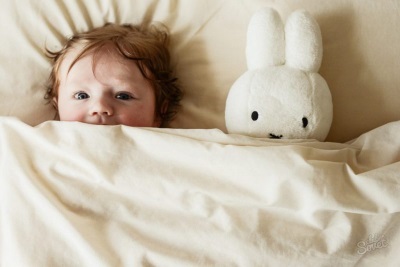
How to adjust a dream of the child?
If your child’s restless night's sleep is not an exception, but rather, it’s already a rule, you should contact your pediatrician. He will advise a way to improve the sleep of the baby, taking into account age features.
If the cause is a disease, the treatment will benefit, and the baby will begin to sleep normally.
If the child is healthy, then “align” his sleep can be on their own.
- Well helps bathing before going to bed, a gentle soothing massage. In the water in which the baby is bathing, you can add a few drops of valerian or motherwort.
- In the evening, it is better to avoid heightened activity, try to arrange all the noisy games and developmental activities with your child during the daytime. An agitated toddler is by definition unable to sleep soundly.
- Do not forget that walks are important to the kid. Children who walk a little, more often than others suffer from sleep disorders. If the weather and the season allow, take small evening walks.
- Bed linen in the baby’s crib should be only of their natural fabrics, the mattress should be even and moderately soft (the best option is an orthopedic mattress), and the diaper must be checked, high-quality and reliable. Children under 2 years old do not need a pillow.
Special rituals help to establish a night's sleep. Each mother can come up with them according to the needs of her child. In my family, this is a mandatory reading of a fairy tale after bathing before bedtime. Make your ritual a must. Whatever happens, it should be strictly followed. This will allow the child to quickly understand what he wants his parents, and he will wait for the events in a certain order. This reduces stress levels, makes bedtime softer and smoother.
- Today it is better not to experiment with aromatic lamps, because babies are very sensitive to smells, and a head of an infant can get sore.
- Doctors often recommend restless babies glycine. This amino acid, protects against nervous overstrain, saturates the blood with oxygen. It has a cumulative effect, that is, you need to take it systematically. Glycine does not cause harm, and therefore it is prescribed to infants and older children.
- Do not "push" on the child. Phrases like “Sleep fast, I said!” Should not be in your vocabulary. Otherwise, the baby will soon begin to perceive the night rest as a service.
- Usually sleep disorders in children are not caused by any one reason, but by a combination of factors. Install them, fix them and help your baby with insomnia. The main thing in this difficult task is patience and parental love. They are the main "doctor."
Important for the child and the sleep pattern of the parents themselves. Experts have long noticed that in families where mom and dad sleep little, they do not get enough sleep, they work at night, children also suffer from sleep disorders. Normalizing a child’s sleep is not as difficult as it seems. Enough to listen to the baby. Believe me, he is ready to cooperate with you, because he himself needs good rest. And let the sleep of your toddler be strong and calm!
From the following video you will learn 10 rules of healthy childhood sleep from Dr. Komarovsky.
